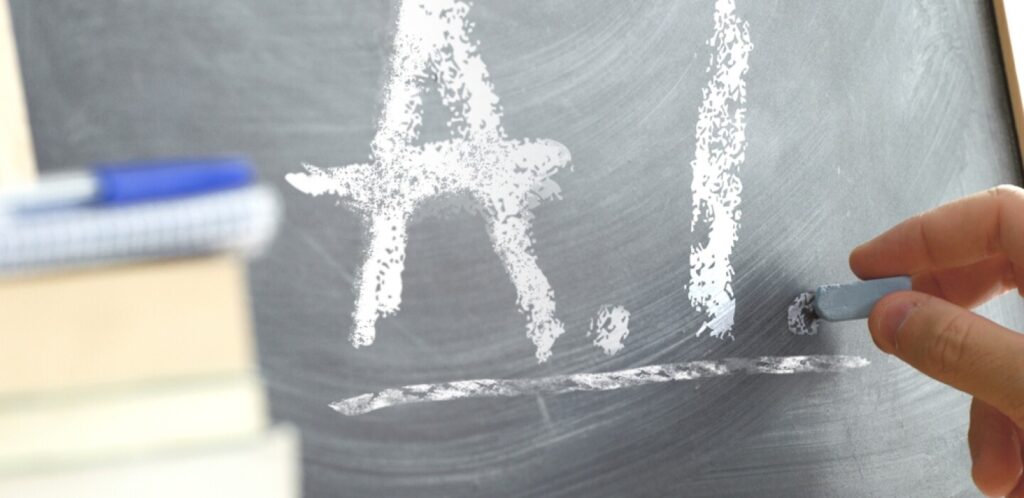(TNS) — As artificial intelligence begins to take hold in classrooms across the country, policymakers in Louisiana are considering how schools can make the most of the technology while avoiding its potential pitfalls.
The state Department of Education established a new AI task force this year to stay ahead of the curve by developing policy recommendations for the state's K-12 school system. The group met on Wednesday to discuss safeguards for AI education and how best to provide training and support to educators and students.
Also Wednesday, the state Board of Regents voted to create its own commission to study the use of AI in higher education.
Louisiana is among the first wave of states to provide schools with guidance on how to harness the power of artificial intelligence, and some educators are already using it in tutoring, lesson planning and other classroom applications. uses artificial intelligence in its operations. However, many educators and experts are also concerned about misuse of AI, including plagiarism and the generation of false information.
As of March, five other states had issued guidance and several others were developing recommendations, according to the Center for Reinventing Public Education.
Jagriti Agrawal, co-founder of Kira, a technology startup that develops STEM learning materials, said teachers have strong feelings about artificial intelligence, but what they really need now is guidance.
“Teacher reactions to AI right now are polarizing,” said Agrawal, a member of Louisiana's new AI task force. “It's either you say, 'This technology is going to take my job,' or you say, 'Oh my God, this is magic.'”
But the reality is not so extreme, Agrawal added. “It's just like any other tool.”
Louisiana is already using an AI tutoring system to reduce learning loss due to the COVID-19 pandemic, despite concerns from experts who warn that research on computer-based tutoring is still inconclusive. It has been introduced. The state Department of Education has selected an AI-powered computer program called Amira as one of several options schools can choose from to expand personalized instruction for students. Currently, approximately 360 schools in Louisiana use it.
“We know learning losses and gaps exist in student instruction, and we know how to improve them by providing clear instruction on exactly what students need,” State Education said. said Jenna Chiasson, the department's assistant superintendent for teaching and learning. “From what we've seen so far, AI tutoring does just that. It can really predict what students need.”
Many students are already experimenting with artificial intelligence. A Pew Research Center survey last fall found that about 1 in 5 teens who had heard of ChatGPT, an AI-powered software that can generate text in response to questions, said they were more likely to complete their homework. I answered that I had used it to help.
Some teachers are embracing AI as a way to support multilingual learners and students with disabilities. But many people remain wary of the risks. According to her 2023 report from the U.S. Department of Education, educators believe that this technology produces inappropriate or incorrect output, amplifies bias, and that students do not use their AI-generated artifacts for their own purposes. We recognize that it may be easier to disguise the
Adam DiBenedetto, director of innovation for the Louisiana Department of Education, said the task force is trying to alleviate those shortcomings through clear policies.
The most important thing, he said, is “student privacy and cybersecurity.” “We want to make sure that the guidance is thorough and comprehensive to ensure that all of that is considered.”
Some schools in Louisiana are also starting to explore ways to use technology outside of the classroom. Several school systems have purchased ZeroEyes, a gun detection software that analyzes images in security feeds and sends alerts to authorities if a firearm is detected.
In West Baton Rouge, which introduced the technology several years ago, Superintendent Chandler Smith previously said the software detected two possible weapons in his first few months on the job. One turned out to be a toy gun and the other a sheriff's deputy's gun.
But some digital rights advocates worry about the technology's unintended consequences, saying programs like ZeroEyes could be less effective due to false negatives and algorithmic bias, both of which could put civilians at risk. It is claimed that there is a possibility of exposure.
Louisiana universities are also preparing for an AI future.
At Wednesday's meeting of the Louisiana Board of Regents, the board voted to create its own committee to advise on AI-related issues. Deputy Secretary of State for Academic Affairs Tristan Denley said some universities were establishing their own task forces. Develop policies regarding the ethical use of AI, plagiarism, and academic fraud.
Denley noted that some universities are already incorporating the technology into computer science and programming courses, or using it as a coding assistant, prompt creator or instructional tool.
“There is no doubt that AI will have a deep and far-reaching impact on every aspect of our lives,” said Gary Solomon, Jr., chairman.
©2024 Times-Picayune | New Orleans Advocate. Distributed by Tribune Content Agency, LLC.


